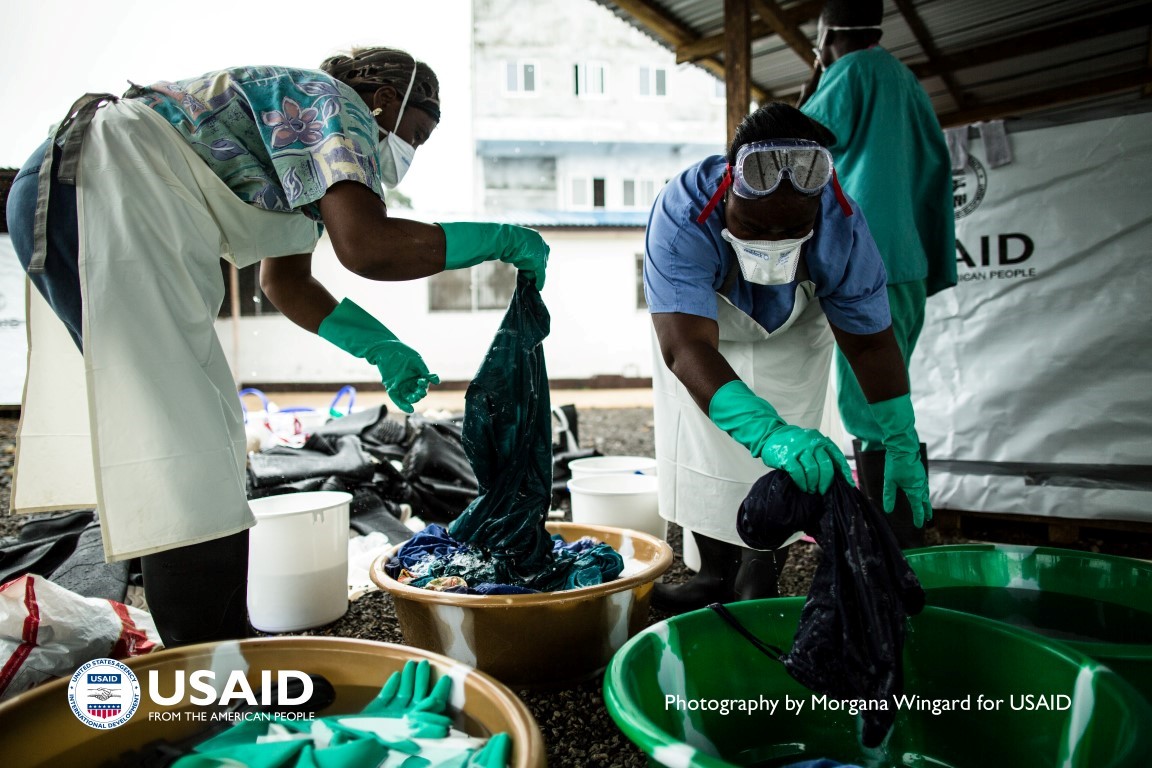Why a pandemic in one country is business as usual in another
 Given how Ebola has been spreading through West Africa without any signs of slowing down, one would think there’d be greater panic with the announcement that the infectious disease has entered America. But that’s not the case. Public health officials echo the words of Tom Frieden, Director of the Centre for Disease Control, “[T]here are core tried and true public health interventions that stop it…There is no doubt in my mind that we will stop it here.” Basically, this consists of treatment, quarantine, and observation.
Given how Ebola has been spreading through West Africa without any signs of slowing down, one would think there’d be greater panic with the announcement that the infectious disease has entered America. But that’s not the case. Public health officials echo the words of Tom Frieden, Director of the Centre for Disease Control, “[T]here are core tried and true public health interventions that stop it…There is no doubt in my mind that we will stop it here.” Basically, this consists of treatment, quarantine, and observation.
Even with doctors at Texas Health Presbyterian Hospital mistakenly sending Thomas Eric Duncan, the man who arrived from Liberia incubating the virus, home due to some miscommunication between electronic medical records and staff (or a lack of symptoms, or a lack of insurance, who really knows?), there is very little risk of an outbreak happening in the United States. Those at risk of having been infected have been traced and are being monitored. They’ve been instructed to remain isolated, just in case. Unfortunately, solitude is a luxury that much of the world cannot afford.
While developed countries like the United States and Canada have precise guidelines and protocols in place for containing infectious diseases like Ebola, the affected countries in West Africa aren’t so lucky. The movie Outbreak, with its state of chaos and military intervention, will never be a reality. The amount of people dying from liquefying organs in North America will likely be able to be counted with one hand. People are panicking on Twitter, so what? For us, that’s the only outbreak likely to ensue.
“…it preys on our natural inclination to love…”
In West Africa, the death toll is exceeding thirty-five thousand, confirmed by the World Health Organization. Ebola’s reproduction rate (the rate at which it spreads) is less than two. That means for every one person infected, two more cases result. Compared to the flu or measles whose reproduction rate enters the double digits, that’s nothing. Ebola is not airborne; it can only be spread through direct contact—an exchange of fluids. Latex gloves, surgeon masks, good hygiene are all easy ways to prevent its spread. If all else fails, stay away.
That may seem like common sense to us, but it goes against the very human impulse to care for and nurture our sick, to cradle them in our arms and tell them it’s all going to be okay. Fluids like blood inevitably transfer through touch. The current Ebola pandemic has a fatality rate of around seventy per cent. How do you tell a mother to abandon her infected child? That, if she stays to administer care, she too risks contracting the virus. What would ordinarily result in convalescence is a death sentence in disguise.
The majority of infected victims are women. The disease cuts through families, those in close quarters working together to survive each day. That’s the insidious thing about Ebola—it preys on our natural inclination to love, and threatens to break the bonds of our humanity. That doesn’t mean much to us. We have the Internet for communication and companionship, days of work and isolation units for monitoring, experimental vaccines and blood transfusions for treatment. But for those in Liberia, Sierra Leone, and Guinea, it’s terrorizing. Suspicion and panic are guaranteed.
The images in West Africa speak for themselves: little boys on the brink of death bleeding in the street, untouched by wary bystanders; sick parents, exhausted and writhing in pain, unable to kiss their still healthy children goodbye; men trying to escape quarantine camps because they don’t want to die. Who can blame Mr. Duncan (assuming he knew he had possibly contracted the virus) for escaping to Texas? Sure, it wasn’t a noble thing to do, but with borders closing, for many it may seem like the only way to survive.
While coordination, proper supplies, and education are showing signs of stifling its spread, that wasn’t the case in the early days. With poor health infrastructure and enormous public distrust, there have been attacks on aid workers and the toppling of makeshift quarantine zones. Panicked populations have turned into hostile mobs, wielding stones and knives. People are afraid to seek treatment. Hospital is a euphemism for a place to go die.
A disease like Ebola is not deadly because of how it is transmitted, but where it originates. It highlights the gross disparities between our two worlds, and calls into question how much we actually care about international ills. For a long while, the global response to the pandemic was slow. The United States quickly flew its own ill out of West Africa for treatment (all of them survived); Toronto Western Hospital is outfitting a ward in case Ebola strikes in Canada, as a precautionary measure. The test on a suspected patient has come back negative. Ebola hardly poses a threat.
Our public health officials are more worried about Enterovirus D-68 going around causing flu- and paralysis-like symptoms in children. The anti-vaccination movement is causing more trouble with measles outbreaks in schools. The closest we’ll ever come to experiencing Ebola is the fever, bloody diarrhea, and vomiting caused by the Norwalk virus. Sure, we’ll be confined to our bedrooms and bathrooms for a few days. But, unlike thousands in West Africans, we’ll never be confronted with our own mortality staring at us through the ailing, quivering eyes of the people we love most in the world.
